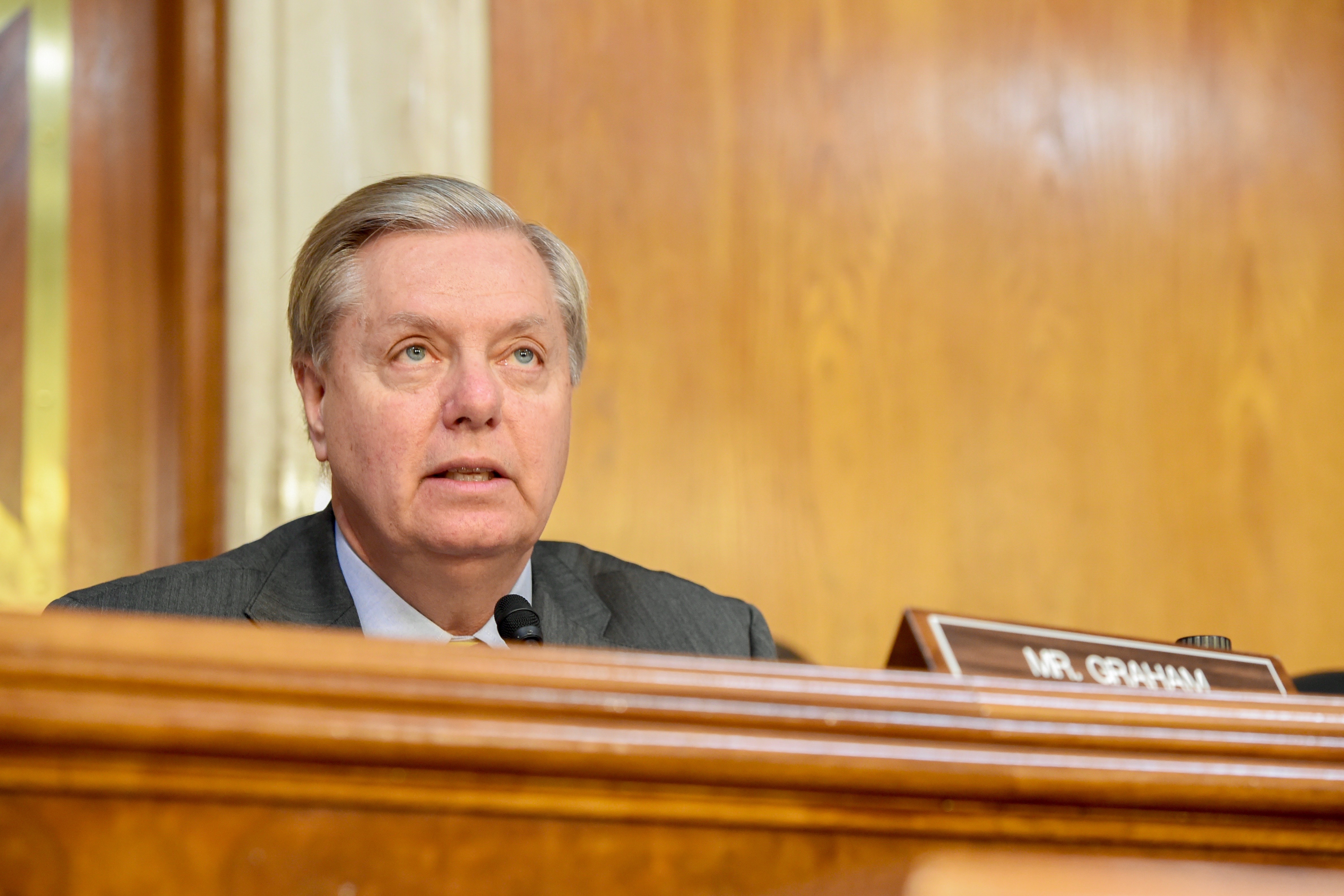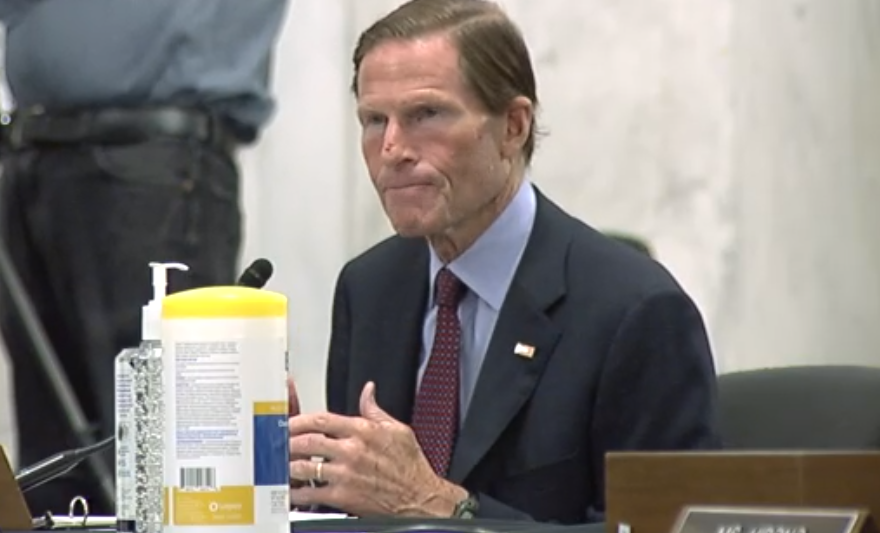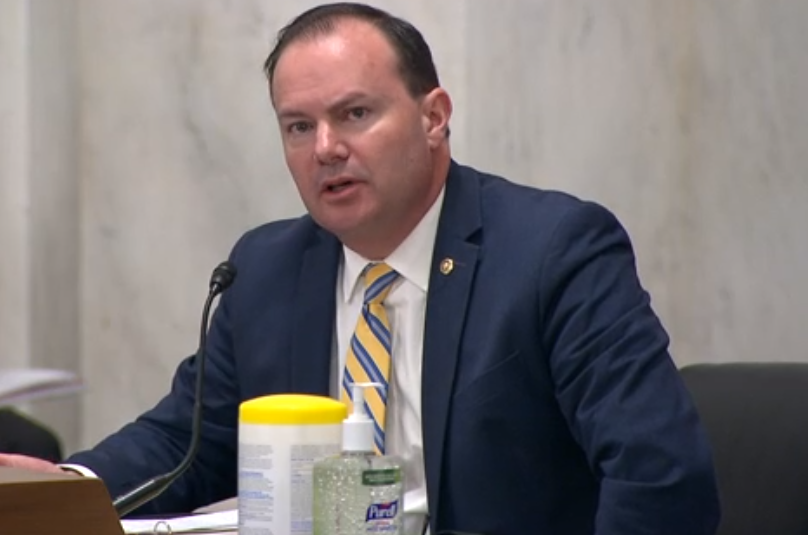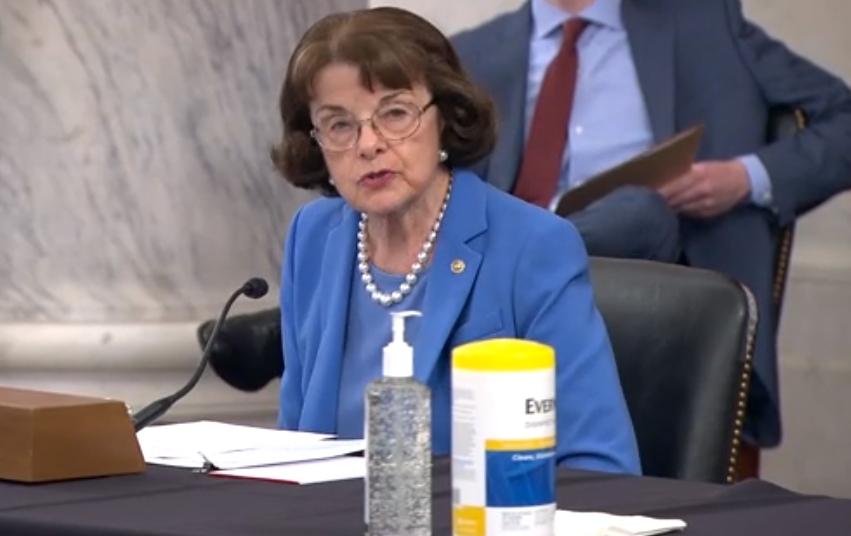Senate Judiciary Approves EARN IT Act
Signals that Big Tech's Sec. 230 will no longer be treated as an impregnable shield against civil liability

The smarter way to stay on top of the multichannel video marketplace. Sign up below.
You are now subscribed
Your newsletter sign-up was successful
The Senate Judiciary Committee has sent a clear, bipartisan, signal that Big Tech's Sec. 230 will no longer be treated as an impregnable shield against civil liability for third party content on social media platforms.
Related: Senate to Vet Edge Provider Liability Bill
The days when Sec. 230 gives every company an absolute liability protection have to come to an end, said Committee chairman Lindsey Graham (R-S.C.). He said he was not out to destroy the companies, but to make them accountable for their actions or inactions.
That came at a markup Thursday (July 2) and a vote to favorably report the EARN IT Act to the full Senate, though with an amendment that said end-to-end encryption would not automatically trigger liability, a change that secured more bipartisan support from those concerned the bill was aimed at creating encryption back doors.
That has also been a big issue with privacy groups and tech companies, which have pushed back hard on the EARN It Act.
Related: Senators Are Teaming on Bipartisan Sec. 230 Transparency Bill
“The EARN IT Act is the strongest piece of legislation that can confront the explosion of online child sexual abuse material," said Patrick A. Trueman, president and CEO of the National Center on Sexual Exploitation. "If passed, Big Tech will finally be held legally accountable to report the sexual abuse of children online. Technology companies currently have blanket legal immunity, and platforms on which CSAM circulates—Instagram, Twitter, and more—are not required by law to report it. EARN IT will provide the necessary incentive for Big Tech to protect children online."
The smarter way to stay on top of the multichannel video marketplace. Sign up below.

The bill, whose principal co-sponsors are Graham and Richard Blumenthal (D-Conn.), amends Sec. 230 of the Communications Decency Act to allow tech companies to be held liable in federal and state courts if there is child sexual abuse content on their sites.
Currently, Sec. 230 is pretty much an absolute shield Graham said before the vote, which would not be the case going forward. He conceded that social media sites "enrich all our lives," but he also called them fertile hunting grounds for child sexual predators. "We are going to act," he said. The committee did.

Senators from both sides withdrew planned amendments to pave the way for a swift "yes" vote on the bill, while reserving the right to try and tweak language before a floor vote. Sen. Mike Lee (R-Utah) had planned to offer an amendment that would set a federal standard for what online conduct would trigger the loss of Sec. 230 immunity, rather than leave it to the states to decide. He said he had problems with a patchwork of state laws on what would be that content trigger, afraid it would allow states to legislate an end to encryption. But with the introduction of the Leahy Amendment, and a pledge from Graham that there would be opportunity to negotiate on language, he did not introduce it.

Senators from both sides of the aisle made it clear in their opening statements that Big Tech had not done enough to keep such content off the web.
Graham said he applauded the efforts of social media sites to childproof sites from sexual predators or take down child pornography, then provided a senatorial understated accusation: "[Nobody] is rising to the occasion at a level I expect."
Related: DOJ Proposes Sec. 230 Reforms
Blumenthal said the bill was not "a meat ax executive order that endangers free speech," a reference to President Trump's order on regulating social media content, but a narrowly crafted and tailored approach to get at insidious torture, rape and exploitation of children, then their re-victimization when that abuse lives on online. He said the bill was about creating an incentive for social media platforms to police their sites by making them legally liable for knowingly enabling the distribution of "filth and misery."
He said that while the breadth of Sec. 230 protection might have been necessary at some point, it was "no longer."
The chorus was joined by Sen. Ted Cruz (R-Texas), who asked to be added as a co-sponsor, and Sen. Dianne Feinstein (D-Calif.), who agreed with the majority that tech companies, some in her own back yard she conceded, had not sufficiently stepped up to the plate.
Graham supported the encryption-related amendment, which was introduced by Sen. Patrick Leahy (D-Vt.), but said they would leave for another day the debate over whether law enforcement should be able to access encrypted info to catch the bad guys, he thinks they should. He said the EARN II Act was aimed at getting websites to better police their content.
Blumenthal said the Leahy amendment cleared up the misconception that the bill was about doing away with encryption, which he said it was not and would never be.
The Leahy amendment was not a sufficient change to endear the bill to its historic critics.
“The EARN IT Act is and always will be a threat to free speech and free expression online,” said Dayton Young, product director at Fight for the Future. “This legislation is tailor-made to remove important legal safeguards for social media platforms, Internet providers, VPNs, and messaging apps that protect our online communications and personal data,” he said.
"While OTI welcomes Senator Leahy’s amendment that aims to ensure that offering strong encryption does not give rise to liability, the committee’s passage of this amendment is not sufficient to remove the threat to encryption services," said New America’s Open Technology Institute (OTI) in a statement. "Given these persisting concerns, Senators should abandon the EARN IT Act and consider more effective, holistic approaches—like the reallocation of law enforcement resources— that would more directly address the problems of child sexual exploitation on and offline."
“The EARN IT Act is the strongest piece of legislation that can confront the explosion of online child sexual abuse material," said Patrick A. Trueman, president and CEO of the National Center on Sexual Exploitation. "If passed, Big Tech will finally be held legally accountable to report the sexual abuse of children online. Technology companies currently have blanket legal immunity, and platforms on which CSAM circulates—Instagram, Twitter, and more—are not required by law to report it. EARN IT will provide the necessary incentive for Big Tech to protect children online."
Contributing editor John Eggerton has been an editor and/or writer on media regulation, legislation and policy for over four decades, including covering the FCC, FTC, Congress, the major media trade associations, and the federal courts. In addition to Multichannel News and Broadcasting + Cable, his work has appeared in Radio World, TV Technology, TV Fax, This Week in Consumer Electronics, Variety and the Encyclopedia Britannica.

